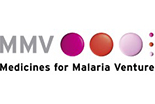2019 DNDi R&D portfolio in review: Leishmaniasis
23 jul 2020
DNDi aims to make treatments safer, shorter, and more affordable and effective for all forms of leishmaniasis. In the short term, better treatment regiments are being developed using existing drugs. In the long term, the goal is to develop an entirely new generation of all-oral drugs.
DNDi’s current leishmaniasis portfolio includes:
Discovery
- Screening: DNDi has identified a variety of novel hit series via the screening of new compound libraries to continuously feed the early discovery pipeline for leishmaniasis. Those new starting points originate from both natural product and synthetic compound collections, either accessed through partnerships, acquired via purchase, or obtained as in-kind contributions to DNDi.
- Leishmaniasis hit-to-lead: The process of hit-to-lead optimization is ongoing, with multiple series being progressed based on outputs of the screening programme. A variety of hit-to-lead mechanisms and exploration strategies are being used to progress towards in vivo proof-of-concept studies in pre-clinical efficacy models of leishmaniasis.
- NTD Drug Discovery Booster hit-to-lead: Booster screening activities were placed on temporary hold in early 2019 to focus efforts on transitioning existing hit series into lead optimization projects. Two hit series are currently under further investigation with Takeda, and work is underway to transition additional series for potential lead optimization in 2020.
- Daiichi-Sankyo leishmaniasis hit-to-lead: The frontrunning series that is the current focus of this hit-to-lead project has clear activity against the T. cruzi parasite, which causes Chagas disease. This series will therefore be progressed for Chagas disease.
- DNDI-5421 & DNDI-5610: Further development of these two compounds remains on hold as development of lead compound DNDI-6148 progresses to a Phase I study.
- Aminopyrazoles: Further work on the back-ups from this series is currently on hold; however, new chemical spaces continue to be investigated through the Open Synthesis Network, a collaborative project that engages master’s and undergraduate students in research for neglected diseases.
- CF series: Further optimization of the CF series lead-series has provided compounds displaying promising potency against L. infantum. Further optimization is ongoing to select additional compounds for in vivo testing.
- Leishmaniasis L205 series: Following the assessment of the three lead compounds from this series (DNDI-6588, DNDI-6749, and DNDI-6174), DNDI-6174 was progressed and nominated as a pre-clinical candidate for visceral leishmaniasis.
Read more about here.






